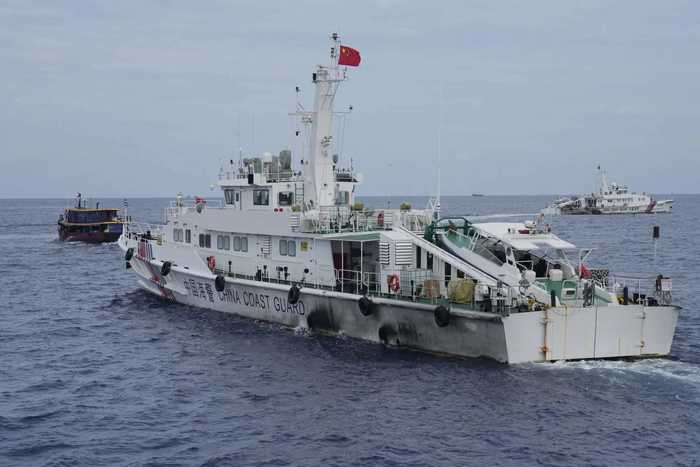Published 16:54 IST, December 29th 2023
China's aggressive stance escalates South China Sea tensions amid naval exercises
China's objections are overshadowed by its own aggressive actions in the area, marked by confrontations with the Philippine Navy and recent water cannon attack.
- Defence
- 3 min read
Tensions seem to be flaring in the South China Sea as the Chinese military expressed strong objections to recent naval exercises conducted by India and the Philippines in the disputed region. Senior Colonel Wu Qian, the Spokesman of the Chinese Defence Ministry, voiced discontent during a media briefing, asserting that defense cooperation among nations should not harm the interests of third parties or disrupt regional peace. However, China's claims seem to be overshadowed by its aggressive actions in the disputed waters.
China's discontent arises from the growing military collaboration between the Philippines and other nations, particularly India and France. Recent confrontations between Chinese coastguard ships and the Philippine Navy vessels have heightened tensions, with the Philippines accusing China of deploying water cannons to attack its ships. The Chinese military's assertive actions in response to joint naval exercises reflect its uncompromising stance in asserting control over the disputed South China Sea.
Contentious dynamics in the South China Sea dispute
China's expansive claim over the majority of the South China Sea has been a persistent source of discord with neighboring countries. The recent naval exercises involving the Indian Naval Ship Kadmatt and the Philippine Navy's BRP Ramon Alcaraz have intensified the geopolitical complexities in the region. China's reaction underscores its inclination towards aggressive posturing, attempting to dissuade other nations from engaging in activities it perceives as challenging its dominance.

Senior Colonel Wu, while asserting that the maritime dispute is solely a matter between China and the Philippines, refrained from acknowledging China's assertive maneuvers. Instead, he emphasized China's commitment to vigilance and safeguarding national interests. The denial of allegations regarding water cannon usage and the portrayal of the Philippine vessel as the aggressor mirror China's attempt to control the narrative and deflect blame.
Chinese dismissal of US criticism as provocation
Addressing criticism from the United States, Wu vehemently rejected accusations and expressed dissatisfaction, portraying China as the victim of external provocation. He accused the U.S. of instigating the Philippines to provoke China, deflecting attention from China's own assertive actions. This narrative reflects China's unwillingness to acknowledge its role as the aggressor in the ongoing maritime tensions.
The recent events in the South China Sea expose China's aggressive approach in the region, characterized by objection to external military cooperation and denial of its own provocative actions. As major powers navigate the complex geopolitics of the area, China's assertiveness raises concerns about the potential for further escalations and challenges to regional stability. The South China Sea remains a hotspot of contention, with China's aggressive posturing shaping the dynamics of the ongoing disputes.
Updated 16:54 IST, December 29th 2023